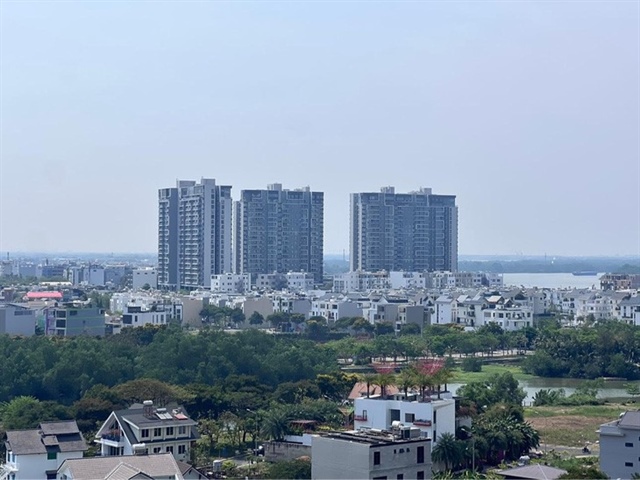|
Most foreign buyers of flats in Vietnam are buy-to-gain investors: CBRE
More than 3,000 foreigners bought residential properties in Vietnam from 2015 to the end of the third quarter of 2023, with 90 percent of them purchasing condominiums.

Foreigners prefer condominiums, especially those in high-end developments in Ho Chi Minh City and Hanoi. Photo: Thao Thuong / Tuoi Tre
|
Up to 60 percent of these buyers are buy-to-gain investors, according to a report by realty consultancy firm CBRE Vietnam.
Buying homes and holding them for capital appreciation remain the most popular strategy for foreigners purchasing residential real estate in Vietnam.
Very few non-Vietnamese, mainly long-term residents, purchase residential real estate for self-use and a few of them are renting out their apartments.
CBRE Vietnam’s report revealed that 75 percent of foreign buyers of residential properties in Vietnam were from developed Asian markets.
Starting in 2015, the Vietnamese government began removing barriers to foreigners’ acquisition of real estate in the country.
Since the relaxation of restrictions on foreign property ownership, buyers from Asian markets, such as China, Hong Kong, and Taiwan, have emerged as the biggest investors in Vietnamese residential property.
Reasons for this include their proximity to Vietnam, the pre-existing presence in Vietnam of large real estate developers from these markets, and the Southeast Asian country’s potential for price growth relative to their home market.
Foreigners have shown significant interest in condominiums, particularly high-end ones boasting prime locations, competitive pricing, and potential for appreciation in value, both in Ho Chi Minh City and Hanoi.
Nguyen Anh Tuan, an expert in commercial real estate in Ho Chi Minh City, said it is normal to allow foreigners to buy homes in Vietnam.
The new policy has helped stimulate foreign investment in the country, specifically in high-end apartments in large cities and tourist areas, Tuan added.
The 2014 Housing Law, which took effect in 2015, permits any foreigner allowed to enter Vietnam to purchase residential properties in the country.
While there is no limit on the number of units a foreigner can buy in Vietnam, there is a cap on the percentage of foreign ownership in a project.
This is set at a maximum of 30 percent per residential building or no more than 250 landed properties in an administrative unit.
Leasehold tenures are set at 50 years and are extendable subject to applicable laws but they cannot exceed an additional 49 years or be converted to freehold tenures should the foreign owner have a Vietnamese spouse.
Tuoi Tre News
|